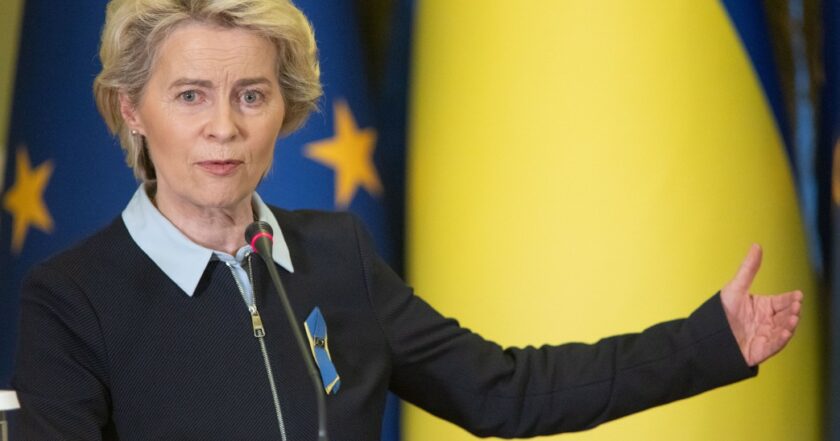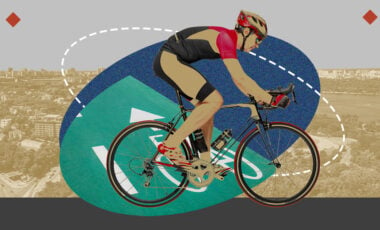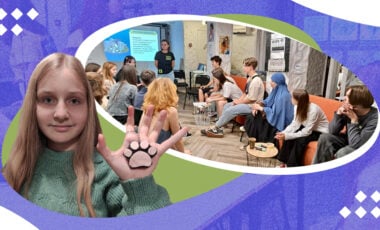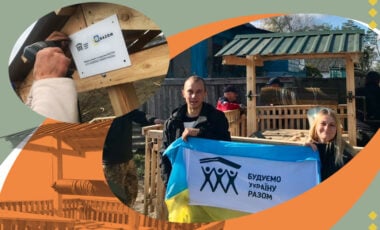European Commission President voices ways to Ukraine's successful recovery

The President of the European Commission, Ursula von der Leyen, announced the strategy for Ukraine's successful reconstruction, which needs to ensure three key points.
The European Commission chief said this in her speech at the International Expert Conference on the Restoration, Reconstruction, and Modernization of Ukraine in Berlin on October 25, EP reports.
Ursula von der Leyen named three critical points for the project's success in her statement.
First, she said, it's necessary to provide Ukraine support it needs at all times.
Second, the right architecture is needed to make support broad and inclusive.
Third, efforts to rebuild Ukraine must be integrated into its path to the European Union since Ukraine has received the status of an EU candidate.
The President of the European Commission stressed that the focus should be on facilitating daily survival in war conditions. Ukraine needs to be able to pay the minimum salaries to the defense forces, teachers, doctors, and pensioners.
"According to the international financial institutions and Ukraine, there is a need of EUR 3 to 5 billion a month just to cover these recurrent running costs.
Here, reliable support is needed from the European Union, from our friends in the United States, and of course, from the international financial institutions.
I believe it is only right if the European Union assumes its fair share. I am working with our Member States so that the Union could support Ukraine with up to EUR 1.5 billion every month of the war, which would be in sum round about EUR 18 billion in 2023," said the President of the European Commission.

Scholz: Ukraine will join EU, reconstruction should consider this perspective

EU supports cybersecurity in Ukraine with over 10 million euro
At the same time, Ukraine needs rapid recovery right now. Even when russia launched deliberate attacks on civilian infrastructure, she emphasized.
"These are pure acts of terror, and russia tries to paralyze Ukraine. But we will not let this happen," said von der Leyen.
Speaking about the long-term needs of reconstruction, the President of the European Commission stressed the need to implement the principles of the Ukraine Recovery conference in Lugano.
According to her, the World Bank estimates the damage from the war at 350 billion euros, and, as she says, this is more than one country or union can afford to provide.
"We need all hands on deck. The G7, the European Union, Europe, strong partners like the United States, Canada, Japan, the UK, South Korea, Australia, New Zealand, and many more.
And, of course, we need the expertise of our partners from the European Investment Bank and the EBRD to the World Bank and the IMF," the President said.
"The coordination platform that the international community has been discussing in the past months needs to get off the ground as soon as possible, preferably before the end of the year or early next year," von der Leyen said.
She also emphasized the need to integrate reconstruction efforts into Ukraine's accession to the EU.
"Ukraine will be in the lead. I think this is paramount because our action will be driven by the aspirations and the desires of the Ukrainian people. And Ukraine has a very clear vision and decided to become a member of the European Union.
Ukraine has achieved candidate status. And with the ongoing relief and rehabilitation, Ukraine will combine investment and reforms with the aim to become a vibrant part of Europe's sustainable and digital future.
With the laws and institutions in place, to uphold the rule of law, to fight corruption, and to have good governance standards of all partner countries and our European Union.
Because the road to reconstruction is, at the same time, Ukraine's path towards its vision. It is a strong anchor to become a modern and prosperous country," said von der Leyen.
We will remind you that German Chancellor Olaf Scholz said that the reconstruction of Ukraine would be a complex project "for a generation."
However, this is also an opportunity to make it more advanced and modern than before the war, combining this process with the approach to joining the European Union.

















































